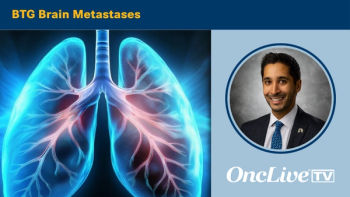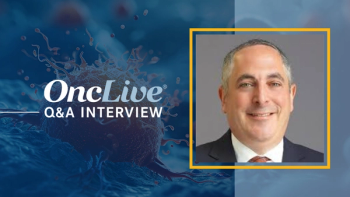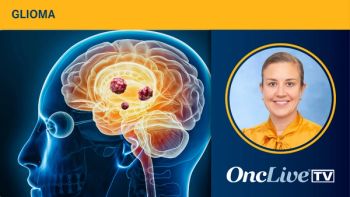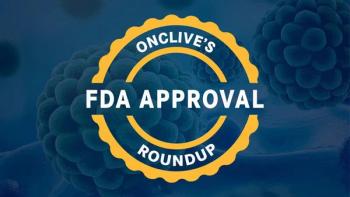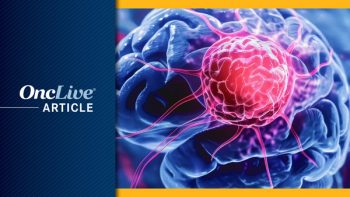
FDA Grants Orphan Drug Designation to Opaganib for Neuroblastoma
Opaganib has received orphan drug designation from the FDA for use in patients with neuroblastoma.
The FDA has granted orphan drug designation to opaganib (ABC294640) for use as a potential therapeutic option in patients with neuroblastoma, according to an announcement from the drug developer, RedHill Biopharma Ltd.1
“RedHill is proud to have received a second orphan-drug designation for opaganib in oncology, following its previous designation for cholangiocarcinoma (CCA, also known as bile duct cancer). This designation for neuroblastoma – the most common infancy malignancy and for which new options are urgently needed – adds to opaganib’s potential as a novel oncological agent,” Mark Levitt, MD, PhD, chief scientific officer at RedHill, stated in a news release.
The first-in-class, SPHK2 inhibitor depletes S1P and elevates ceramides in cancer cells, thus suppressing pERK/pAKT signaling and encouraging autophagy and/or apoptosis in cancer cells.2 The agent has also been shown to downregulate c-Myc expression in several cancer cell lines. Opaganib acts as a sphingosine mimetic and thus inhibits DES1, which is responsible for considerable increases in dihydroceramides in treated cells. The agent also reduces hexosylceramide levels in cells, seemingly by inhibiting glucosylceramide synthase. As such, it is believed that opaganib is able to simultaneously target 3 key enzymes in the sphingolipid metabolism pathway. In several mouse models, the agent has showcased antitumor activity; it has also been found to have anti-inflammatory activity in rodent models.
The safety and tolerability of the agent, given twice daily on a continuous schedule, was explored in fasted patients with advanced solid tumors as part of the phase 1 ABC-101 study (NCT01488513).2,3 Data indicated that the agent was tolerable. Two patients received more than 40 weeks of opaganib; one of the patients had refractory cholangiocarcinoma and achieved a prolonged partial response to treatment. Most patients (64%) who completed 2 cycles of the agent achieved stable disease or better. The maximum tolerated dose was not reached on the study but the recommended phase 2 dose of opaganib was 500 mg twice daily.
Investigators also evaluated the activity signal of opaganib alone or with hydroxychloroquine sulfate in patients with advanced cholangiocarcinoma as part of a single-arm phase 2a trial (NCT03377179),4 and the agent received orphan drug designation from the regulatory agency for this population.5
Another phase 2 study (NCT04207255) is examining the addition of opaganib to androgen antagonists in patients with metastatic castration-resistant prostate cancer who have experienced disease progression while receiving abiraterone acetate (Zytiga) or enzalutamide (Erleada).6 The trial has completed enrollment, and follow-up is ongoing.5 Opaganib is also under exploration in patients with COVID-19.
“Opaganib has broad oncology potential with promising preliminary clinical data in solid tumor cancers, such as prostate cancer and CCA, and data from a range of US government supported and Apogee conducted preclinical studies in various indications, including radioprotection, and also in combination with RedHill's RHB-107,” Levitt added in the release.1 “We also see such utility extending to the potential for opaganib to have a sensitizing effect in hormone receptor pathway inhibition therapy, which the Company expects to test in a planned externally funded phase 2 study.”
References
RedHill’s opaganib granted orphan drug designation by the FDA for childhood cancer, neuroblastoma. News release. RedHill Biopharma, Ltd. August 26, 2024. Accessed August 26, 2024. https://www.redhillbio.com/news/news-details/2024/RedHills-Opaganib-Granted-Orphan-Drug-Designation-by-the-FDA-for-Childhood-Cancer-Neuroblastoma/default.aspx
- Smith CD, Maines LW, Keller SN, et al. Recent progress in the development of opaganib for the treatment of Covid-19. Drug Des Devel Ther. Published online July 12, 2022. doi:10.2147/DDDT.S367612
- ABC294640 in treating patients with advanced solid tumors (ABC-101). ClinicalTrials.gov. Updated January 7, 2020. Accessed August 26, 2024. https://clinicaltrials.gov/study/NCT01488513
- A study of ABC294640 (Yeliva®) alone and in combination with hydroxychloroquine sulfate in treatment of patients with advanced cholangiocarcinoma. ClinicalTrials.gov. Updated April 4, 2023. Accessed August 26, 2024. https://clinicaltrials.gov/study/NCT03377179
- Opaganib. RedHill Biopharma, Ltd. website. Accessed August 26, 2024. https://www.redhillbio.com/our-programs/pipeline/opaganib/default.aspx
- Addition of opaganib to androgen antagonists in patients with mCRPC. ClinicalTrials.gov. Updated June 25, 2024. Accessed August 26, 2024. https://clinicaltrials.gov/study/NCT04207255


